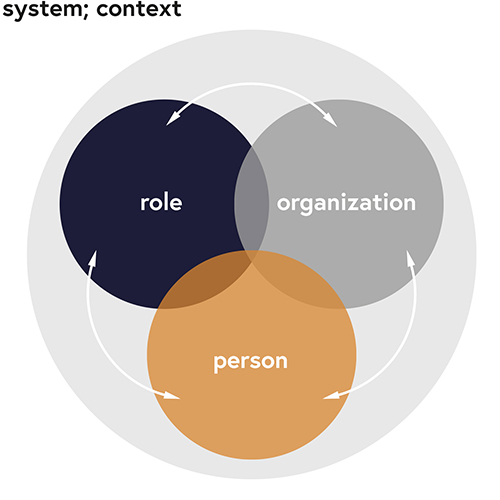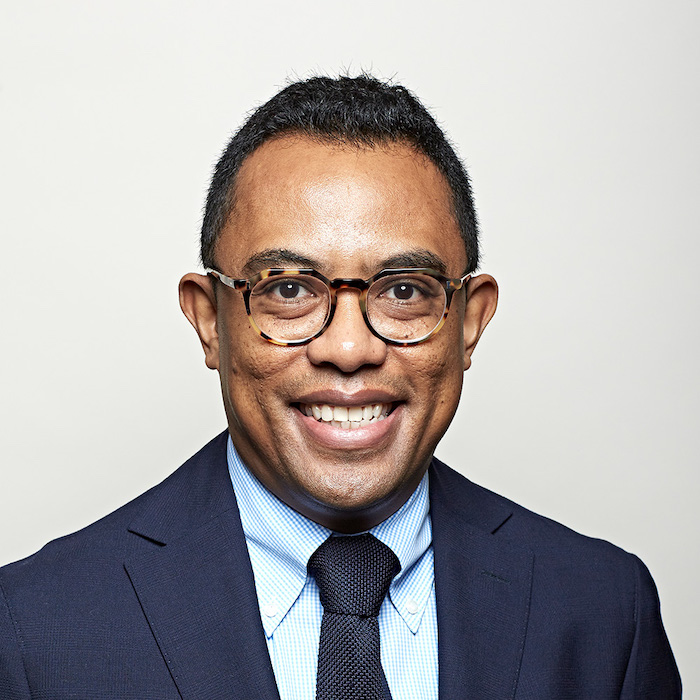
Author
Channelling your personal values to drive transformation
Posted by Pierre-Yves Rahari on 7 April 2021
I was invited to talk about my views on impact at a recent online event[1], and how I believe I am making an impact in my life. Although this event was primarily a personal interview, I got to talk extensively about the purpose of the work we do as consultants and executive coaches at AlgoMe Consulting. Taking a more personal approach to our series of insight pieces, I have chosen to share in this article the views I discussed during this interview and describe my attempt to channel my personal values to make an impact and drive transformation.
Allow me to introduce a couple of working frameworks before diving into a personal account of the impact we aim to bring at AlgoMe Consulting.
Impact is a function of motivation, choice and resources
As a starting point, I would posit that impact is the ability to influence and action, or implement change i.e. drive transformation. I can effect change on my own, or with others as a matter of choice or circumstances, bearing in mind that effecting changes with others is done – necessarily – through an organisation.
Three questions emerge from this statement, that need to be considered:
- The first question is, what needs changing and/or what do I want to see needs changing? And why? As a corollary, how much of an impact do I want to make? This is what I call the motivation question.
- The next question is, what resources are available to me to make the changes I desire? This is what I call the resources or capability question.
- Finally, given that my resources are not infinite, the third question is, how do I prioritise the impact on which I am -going to work? What choices do I make?
Judging by these three questions, it seems that another way to consider the question of impact is that, in order to make an impact or action change, I am to resolve the following equation:
I = f ( M; R; C)
where impact (I) becomes a function of motivation (M), resources (R) and choices (C).
This schematic view of impact brings up further consideration:
- Impact is a multi-dimensional concept: I can create impact in one or several ways or directions; in all shapes and forms; with a short or longer time span.
- Impact is an evolutive or dynamic concept: Each of the dimension of the equation M, R or C will change –
Let’s now turn to another useful framework when considering impact.
Impact is contextual
At AlgoMe Consulting we believe that there is a very strong interconnection between who I am as a person; the role I play in an organisation; the organisation in which I find myself; and the system or context in which all these parties operate. We have captured these ideas in a framework called “Organisational Role Analysis,” which is inspired by concepts developed at the Tavistock Institute in London and by the theory of systems[2]; when appropriate, we use it as a framework to conduct conversations in our consulting practice, and more specifically for leadership development and coaching engagements.
Introducing AlgoMe Consulting’s model of Organisational Role Analysis:

There are two key concepts to bear in mind when considering this model:
- The first key concept in this model, is that a system functions best if there is balance between all elements of the system. Trouble starts when imbalance emerges, taking the form of stress, disruption, chaos, paralysis, procrastination and so on.
- The second key concept is that each element of the system can have an influence on the other elements and have agency, one way or the other. Therefore, I have the ability and can choose to exert influence on the other elements to create, restore – and sometimes – disrupt – on purpose – the balance of the system.
Consequently, when I sense that the balance is broken in my system, or if I want to change the dynamics in the system, I have agency to analyse and understand the source of imbalance, and make an assessment of what can be done pro-actively, i.e. what needs changing in order to restore balance in the system.
Let’s now bring together the two models we have so far examined.
Impact is a dynamic process
Bringing together the concept of impact-as-an-equation and the concept of role-analysis, I am now able to examine the question of making an impact through a multi-dimensional lens:
- Impact depends on the stage of life or career I find myself in, considering in this view that my personal life and my career are not mutually exclusive.
- I have agency and can take action, so long as I respect the principle of reality.
- I have to prioritize and make choices, as a function of the resources available to me.
- Making an impact is a very dynamic process, it is evolutive, with stops and go’s, with ups and downs, with short term and longer-term implications.
Closing the loop on these conceptual considerations, I think I would now ask myself the following three questions when thinking about the impact I want to make:
- What do I think needs changing?
- How can I do this?
- And what transformation can I observe as a result?
Let me know illustrate this with personal examples.
Making an impact
There are two ways I chose to make an impact at AlgoMe Consulting. One is through the purpose and values that we have set up for our organisation. The other is through my engagements as an executive coach.
I helped set up AlgoMe Consulting at a stage in my professional career where I felt – like many of us in the Investment Management industry – changes needed to be brought about in the manner we conduct and operate businesses i.e. revert to the fundamental concept that our industry is managing funds that have been entrusted to us by investors. It commands a more ethical, transparent, humble, inclusive, sustainable and committed behaviour than we could observe. Furthermore, I felt – like my partners and colleagues – that I would be more efficient in influencing these changes by setting up a management consultancy, because of the range of freedom and impact afforded by the consultancy model. As such, we have defined our purpose to influence and implement strategic and sustainable change in the investment management industry. Today, we support and accompany these changes, by helping our clients as they are thinking through and implementing these transformations.
As an executive coach, I have chosen to support my clients’ ability to be agent of change for themselves and/or their organisations, especially in situations where clarity, balance and empowerment seem scarce to them. I developed this line of work in parallel to our engagements as consultants at AlgoMe Consulting, because they are complementary It came as a natural development of the management and mentoring roles I held consistently throughout my career. This is an illustration of the dynamic nature of impact that I discussed earlier.
There are many other examples of how I chose to make an impact, but I think these are a good illustration of how I have brought my personal values and ideas on impact into the ethos and modus operandi of our organisation.
As for yourself, how do you channel your personal values to drive transformation?
[1] “Making an impact: Channelling talent to drive transformation:” , an event hosted by Leanne Mair
[2] “How can the notion of organization-in-the-mind be usefully applied to coaching?” – P-Y. Rahari (March 2019)
Next post
Accelerated digitisation and the Wealth and Asset Management industry
Posted by Luuk Jacobs on 20 April 2021
Read post